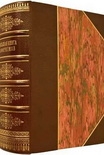Loverly:The Life and Times of My Fair Lady (Broadway Legacies) by McHugh, Dominic (best ereader for pc .TXT) 📗

Book online «Loverly:The Life and Times of My Fair Lady (Broadway Legacies) by McHugh, Dominic (best ereader for pc .TXT) 📗». Author McHugh, Dominic
17. “I Could Have Danced All Night” from folder marked “Vocal Score” in HLP, 30/1.
18. “I Want to Dance All Night,” copyist’s score with title in Loewe’s hand, WCC, 146/8. That the score has also been marked “Peter”—indicating Peter Howard, the conductor’s assistant—also suggest that this title was used during rehearsals rather than as the original title of the song.
19. Script, HLP, 34/4.
20. Script, HLP, 34/3.
21. Copies of the playbills and the early pressing of the album are in the author’s collection.
22. My Fair Lady script, HLP, 34/5.
23. Her lines are: “I understand, dear. / It’s all been grand, dear. / But now it’s time to sleep.”
24. There is also an amusing copying error in the second refrain: instead of writing “[Why all at once] my heart took flight,” Bennett has put “my heart stood still,” probably an unconscious reference to the Rodgers and Hart song “My Heart Stood Still.”
25. We saw in chap. 5 that in the New Haven version of the show, Eliza had an additional solo, “Say a Prayer for Me Tonight,” before setting off to the ball, but it was cut during the first week of tryouts. The return of “Just You Wait,” therefore, has all the more impact.
26. The same can probably be said of “The Rain in Spain,” whose use of habanera rhythms is connected simply to the reference to Spain in the song’s title.
27. “Just You Wait,” Rittmann’s autograph, WCC, 148/3.
28. “On the Street Where You Live” reprise, original orchestration, WCC, 148/1.
29. “Street Reprise,” Rittmann’s autograph, WCC, 148/3.
30. “Show Me,” Loewe’s autograph, FLC, 5/22.
31. Lerner, Street, 92–94.
32. “Without You,” various scores, WCC, 153/7. The autograph in FLC, like so many of the others, presents only the final version of the text. FLC, 5/29.
33. It is partly a performance issue, too: Rex Harrison brings appeal to the part in the film, which other actors might not do on the stage.
34. Lerner, Street, 77. Lerner specifies “In Norway there are legions / Of literate Norwegians” as an example of a short, Cowardesque lyric.
35. Harrison, Rex, 164.
36. Letter of November 29, 1955, Lerner to Harrison, HLP, 25/7.
37. The pages from this manuscript are divided between four other songs in the Loewe Collection and used as covers to bind them: “Show Me,” “I Could Have Danced All Night,” “The Street Where She Lives,” and the final version of “Why Can’t the English?”
38. However, it is clear that while Rittmann wrote the eighth notes in the melody line in bars 2, 3, 5, 9, 10, and 11, Loewe contributed those in bars 6, 7, and 8; Rittmann’s eighth notes are smoothly rounded while Loewe’s tend to have a distinctive groove in the tail.
39. Lerner, Street, 92–94.
40. Curiously, a copy of this score was registered with the Library of Congress for copyright on April 3, 1956, (three weeks after the show opened), rather than the final version. “Why Can’t the English?,” WCC, 152/8; Library of Congress copyright deposit, Eu 432970.
41. The new couplet reads: “Make one slip in German and, Good Lord, how the Germans roar! / In fact, you’ll be lucky if they all don’t go to war.” The words “you’ll be lucky if they” are set to a new descending F-major scale of sixteenth notes to fit in the extra words.
42. The three differences are: the use of the past tense in relation to the Hebrews (who “learnt” it backwards in this lyric but “learn” it backwards in its published form); a witty mention of ancient Greek (“But soon proper English will be dead as ancient Greek!”); and a line asking why the English can’t use “decent English.”
43. “The English,” WCC, 152/8.
44. The only difference is that “The Scotch and Irish” later became “The Scotch and the Irish” in the final song, necessitating the modification of an eighth note into two sixteenths. Both the early autograph and the copyist’s score for the initial version of the song feature a clumsier melody and harmonic rhythm at this point.
45. The front indicates that the copy belonged to Franz Allers, the conductor, though it is difficult to determine whether he was responsible for the modifications. Loewe’s autograph score for “Why Can’t the English?” is located in FLC, 5/26.
46. The lyric sheet is with the other “Why Can’t the English?” documents in WCC, 152/8.
47. Lerner, Street, 68.
48. Ibid., 68–69 and 77.
49. It reads “With no eccentric whim” instead of “Of no eccentric whim,” “Who wants to live his life” instead of “Who likes to live his life,” “For let a woman in your life” instead of “Oh, let a woman in your life” (in two places), and instead of ending “Oh, let a woman in your life … / Let a woman in your life. … / Let a woman in your life,” the original lyric read “For let a woman in your life … / But let a woman in your life. … / Just let a woman in your life … ”
50. As an aside, the original American edition of the script omitted the line “Just a very gentle man” at the end of the relevant verse—apparently an oversight, because the English edition reinstates the line, as do the published scores.
51. This is based on the lyric from the rehearsal script, not the published lyric.
52. The autograph full score for the scene change music is also in Bennett’s hand, but it is titled “New No. 5a (Ordinary Man),” suggesting that something different might originally have been planned.
53.





Comments (0)